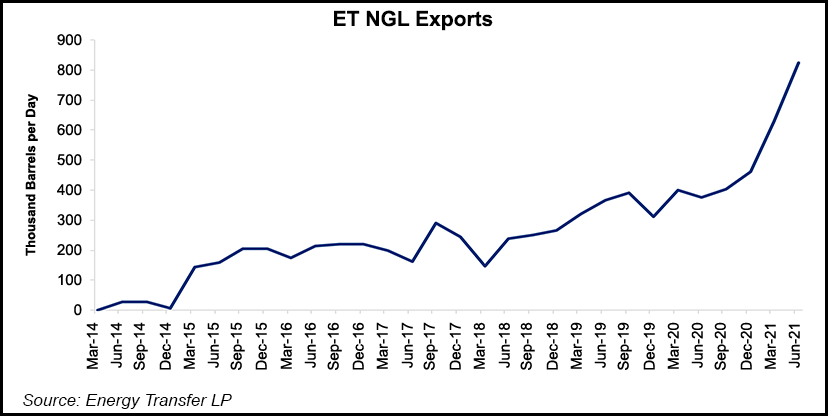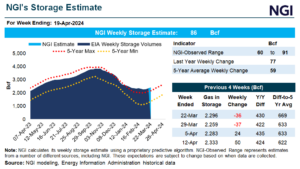Earnings | Natural Gas Prices | NGI All News Access | NGI The Weekly Gas Market Report | Permian Basin
Energy Transfer Says Jump in Gas Prices, Strength in NGL and Refined Products Boost 2Q2021 Results
© 2024 Natural Gas Intelligence. All rights reserved.
ISSN © 1532-1231 | ISSN © 2577-9877 | ISSN © 1532-1266 |



